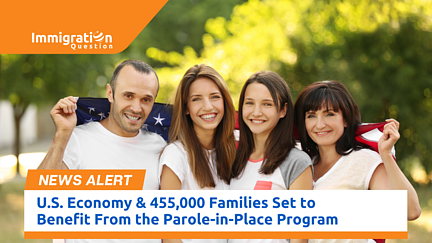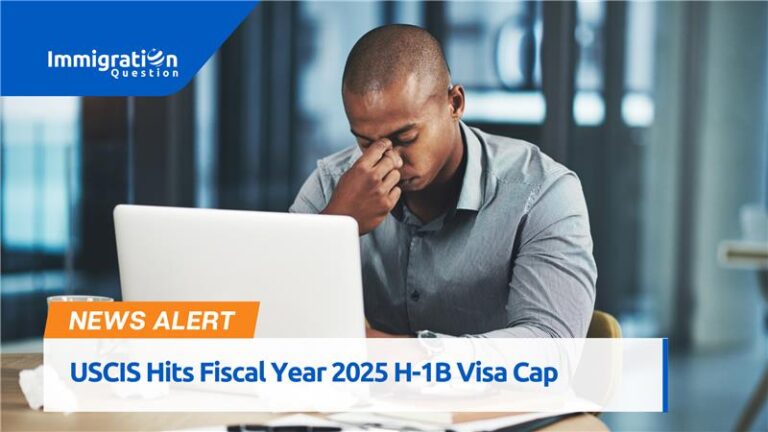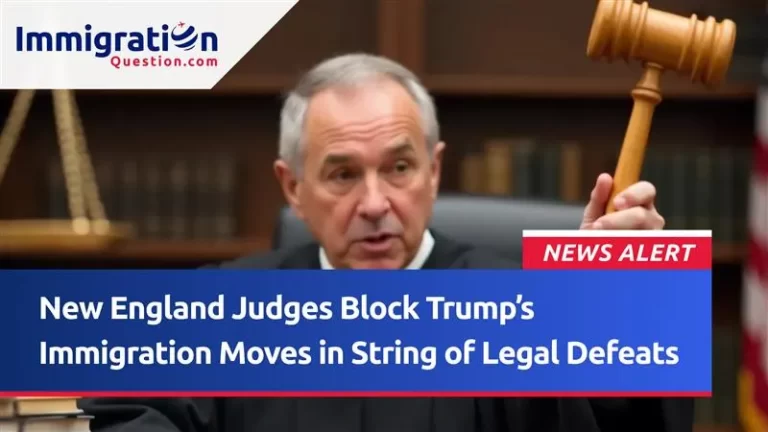The Biden’s administration on June 18 rolled out a new plan that lets some spouses of United States’ citizens get a special visa from the Department of Homeland Security (DHS). This plan will let undocumented spouses of U.S. citizens get temporary protections and work permits in the US. It also lets them apply for a green card (also called a permanent resident card) through their spouses without having to worry about being separated from their families for years.
In a recent survey conducted by the Center for Migration Studies of New York (CMS), about 455,000 US families are set to benefit from the program, mostly living in California and Texas. They are protected from the threat of deportation, and also have the opportunity to pursue the bigger pathway to citizenship, and obtaining work authorization.
Right now, US citizens can help their non-citizen spouses get permanent residency, but the hurdles and risks involved have made it tough and scary for a lot of unauthorized immigrants to actually get the legal status they are supposed to. The Biden administration’s new parole program is tackling the biggest of these issues. Even if the program is paused or changed in the future, those who get parole under it will still have made a much simpler way to become permanent residents of the US.
The situation before the Parole-in-Place program
Spouses of US citizens can usually get an immigrant visa and become permanent residents, but those who came into the US without permission face more challenges. They often have to leave the US, go to a consulate, and wait years before they can apply for a green card. If they are married to a US citizen, they might get a waiver if their spouse would suffer extreme hardship from being separated for a long time. However, getting a waiver is not guaranteed, and the process can take over three years.
What is the program about?
The United States’ immigration law lets the executive branch issue “humanitarian parole” to certain individuals who can’t legally enter or stay in the US, but the government believes it’s necessary for urgent humanitarian reasons or public benefit.
This allows them to stay temporarily for a few days to several years. Parolees can also get work permits to support themselves. If they are already in the US, it is called parole-in-place.
If someone is granted parole, including parole-in-place, they are considered “inspected and paroled” into the US under federal law. This means they can apply for green cards through their spouses by adjusting their status within the US without facing deportation risks if they leave.
Even if their parole or work permit expires or is taken away later, they are still seen as paroled into the US under immigration law. This means they can still apply for green cards without leaving the US, even if the parole program is challenged or ended by a future president.
What the program is not?
The program is a presidential authority, indicating that a new government could halt Biden’s directive. The structure of the program is that it must be evaluated on an individual basis, and thus, another person in the White House might terminate any such program.
This isn’t a universal pardon that simply transforms a large number of individuals into residents or citizens.
Who qualifies for the program?
To qualify for parole-in-place under the Biden plan, families must complete a form that is currently under development. The form is expected to be ready later this summer. The details on who can apply for the new parole program are not yet available, but the announcement on June 18 suggested the following criteria:
-
Have continuously lived in the US since June 17, 2014;
-
Entered the US on June 17, 2024;
-
Are legally married to a US citizen by June 17, 2024;
-
Entered without official permission or parole status;
-
Have no criminal records;
-
Are not a threat to national security or public safety; and
-
Are considered deserving by the decision-makers.
Applicants must also pay a fee and provide documents, though the specifics of these requirements are unclear.
The effect of this program on US families
This program will help families stick together and boost our economy, giving a big advantage to the country and helping US residents and their family members living abroad stay close.
This is because the program will allow these undocumented spouses of US citizens to finally achieve permanent residency, work legally in the US, and secure the stability and solutions they need for themselves, their US citizen spouses, and their US-born children.
The program could keep hundreds of thousands of families together by protecting them from being split apart. People living in the US without papers are always at the risk of being sent back to their home countries, even if they are married to a US citizen or have kids who are US citizens and have been here for a long time.
This risk is even higher for immigrants in states that are really tough on immigrants, like Texas with SB4, which is all about going after undocumented people. If they get deported and separated from their families, it would be really bad for them, their partners and kids, their communities, and the whole country, with hardly any chances for them to get back together.
Thanks to this program, hundreds of thousands of US citizens will at least get a bit of peace of mind, even if it is just for a little while, knowing their spouses and kids can stay with them in the country they love.
How does the program benefit the US economy?
Most people who could be let out of jail early and stay in the country are working right now, with about two-thirds of them in jobs that are hard to fill right now, like construction, professional services, and food and hotel jobs.
Over 325,000 people who are married to US citizens but don’t have legal status work in these industries. But these people and others in similar jobs often have a hard time getting jobs they could do if they had a work permit.
If they could get work permits, they would be able to work in jobs that need more people, which would help the economy, let more people join the workforce, and make things more affordable for everyone in the US.
People who might be able to get parole in place already add about $13.5 billion to the US economy every year in terms of how much they spend.
If they got permanent legal status, they could do even more for the economy. If they did, they could add another $6.6 billion to the economy every year.
These people are also paying taxes. Every year, they pay more than $3.6 billion in taxes to the government and $1.7 billion to local and state governments. If they became US citizens, they would start paying an extra $2.6 billion in taxes every year.
To stay updated and informed, keep an eye out on our news section or visit https://www.state.gov/newsroom/.










